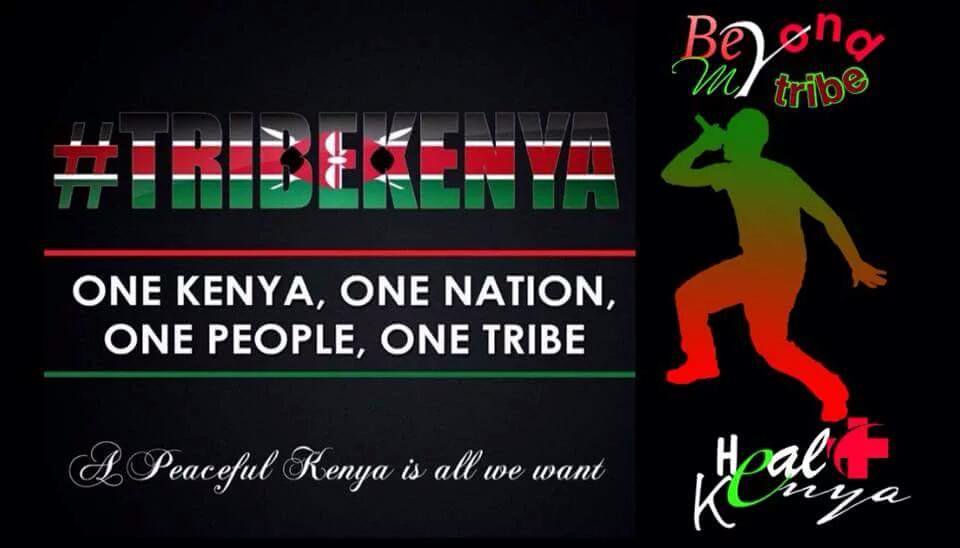It’s a single tweet that has revolutionized the minds of Kenyans who slowly started reasoning with each other. The tweet went viral and for two days the hash tag trended on Kenyan social media landscape.
By Njeri Kimani, editorial@alleastafrica.com
NAIROBI – They are called the Tribeless Youth, a new movement that has captured the hearts of more than one million Kenyan youth across the country.
The #TribelessYouth started one Thursday morning a year ago after Shiko Kihika, its founder got irritated by the tribal jargon that was going trending on twitter and Facebook.
The war of words had been triggered by the death of a prominent Jacob Juma with claims that the government had assassinated him. The killing brought the ugly side of Kenyans, calling each other obscenities and unprintable scenes on the social media.
It was this that ticked 24 year old Kihika off.
“I couldn’t understand how the shootingof the businessman could be pegged to one tribe. I had been following the debate on social media and was sick to the stomach. I remember feeling I did not want to be associated with any tribe so I took to twitter and wrote “I am a Tribeless Youth” said Shiko.
It is this single tweet that has revolutionized the minds of Kenyans who slowly started reasoning with each other. The tweet went viral and for two days the hash tag trended on Kenyan social media landscape.
Shiko took a bold move and challenged her twitter followers to argue on what was wrong with being from a different tribe. Creating a platform for them to talk was a huge step into liberating the mind of the youth .
“After hours, none of them could come with a tangible answer and they started feeling they were actually one people,” she added.
Shiko made a decision to engage youth every Thursday to discuss issues that ideally brought enmity between Kenyans. One year down the line Kenyans on Twitter #KOT take time to engage with each other on issues affecting the youth every week.
“Kenyans are in the process of finding peace with each other. The fact that they can now talk to each other without using the tribal card, which has often been dangled to them by politicians every campaign year indicates that a revolution is ongoing in Kenya,” said Shiko.
It is the wind that has stopped the politicians from using tribal jargon in their campaigns too.
“They are now careful about what they say on and off camera. They now just a careless comment can bring them down especially on social media,” she added
Shiko is grateful for the achievements the government is taking to fight tribalism, including arresting of six Members of Parliament who had been caught perpetrating hate speech.
“Thefact that they were arrested and spent a week behind bars indicates that the country is ready to deal with the problem. I remember president Uhuru angry at them, claiming no one should tag his name in tribal spew and actually refusing to visit them in prison. This was a big show of commitment by the government,” she added.
However, a lot more is yet to be done to deal with the cancer that is eroding the country private sector. Politicians still try to utilize the tribal card which has in turn forced many youth to retreat to their cocoons every time the elections draw near.
Since most Kenyans vote as a block, tribes played a significant role in the 2007/08 post-election violence that saw about 1500 people killed while 650 000 more displaced. The war was between Kikiyus, Luos and Kalenjins mainly but it greatly affected the economic and social backdrop of the country.
Even with the National Cohesion and Integration Commission trying to stem ethnicity and tribalism in country, tribalism is greatly experienced in social media and in rural areas.
However scary statistics of tribalism in government institutions continue to hit the Kenyan market.
A government survey released in August 2016 showed that six ethnic communities were in charge of three quarters of all the jobs in the 31 public universities and colleges.
This poses a great danger especially when senior politicians take to the streets to protect “their own.”
Recently Uasin Gishu Governor Jackson Mandago and Elgeyo Marakwet Governer Tolgos stormed into Moi University after the Ministry of Education employed a vice chancellor Laban Ayiro, a kisii and not Kalenjin one. The two governors claimed that he was an outsider and not fit to run the institution, hence demanding his immediate sacking. They rallied their supporters into demanding his dismissal in one of the ugliest case of tribal display by politicians.
However, they are now finding it hard to call youth to war on the basis of their ethnicity.
“I am a kikuyu but my tribe stops the time a politician will tell me to pick a stone and beat up someone because he is a luo. I find it absurd that the same politicians who turned us against each other flew out of the country when Kenyans started tearing each other apart. It’s this realization that has made me different, and I don’t want to be part of the mess in Kenya. Hence I choose to remain #TribelessYouth,” said Joseph Ngugi, a network programmer.
Esther Kimani pointed out that it was important for youth to talk to each other.
“The moment we stop talking is the moment we start fighting,” she added.
|
Copyright © 2017 Alleastafrica.com All rights reserved. The information contained in Alleastafrica.com may not be published, broadcast, rewritten, or redistributed without the prior written authority of Alleastafrica.com |



